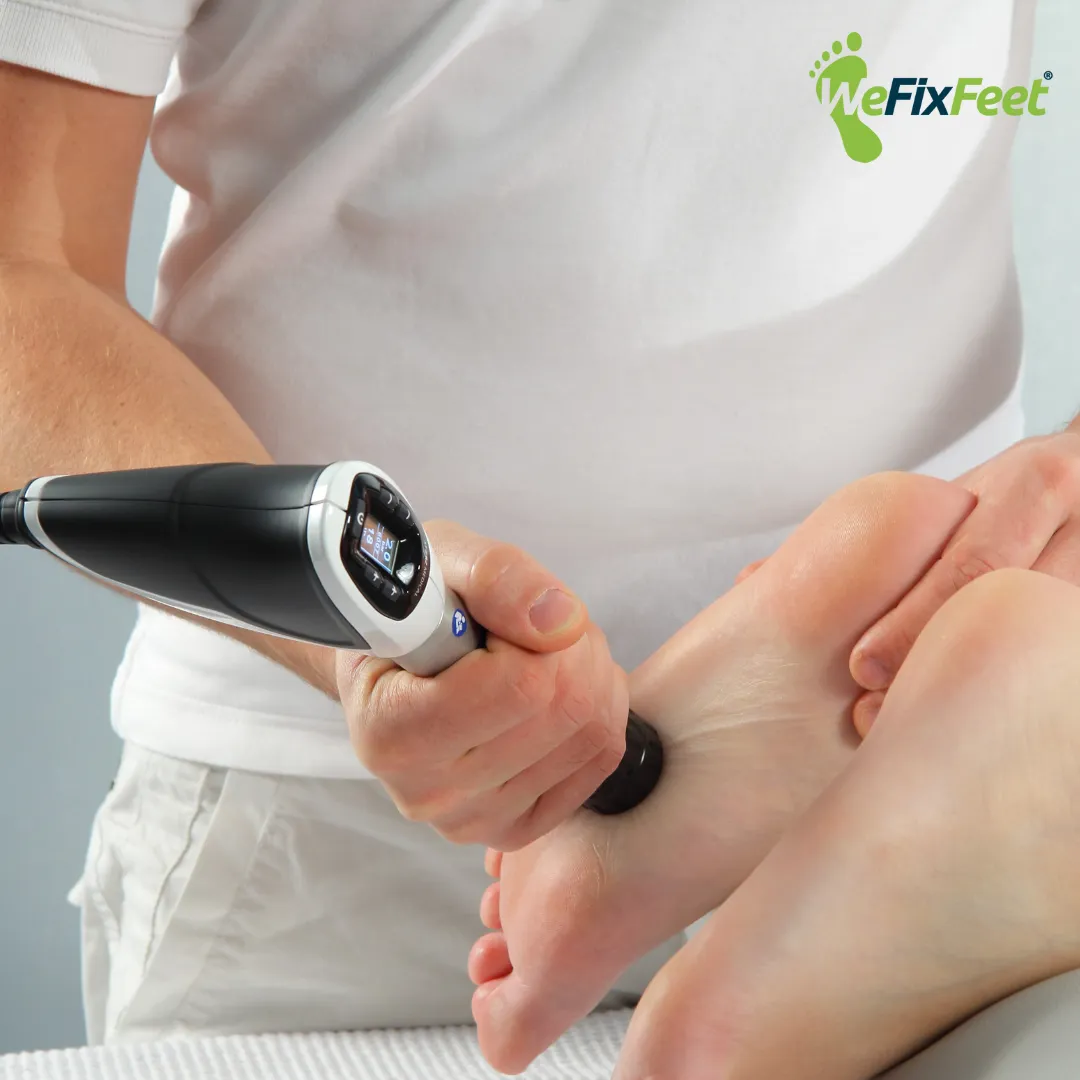
Can You Still Run with Achilles Tendinopathy? Here’s What the Experts Say
The Runner’s Dilemma
You love running. It’s your escape, your stress-buster, and your way to stay fit. But then it hits you—a sharp, persistent pain in the back of your heel that refuses to go away. This is the reality for many runners like Joe, a driven professional who juggles a busy work schedule with his passion for running. Achilles Tendinopathy can feel like an unwanted barrier. The burning question is: Can you still run with Achilles tendinopathy?
Understanding Achilles Tendinopathy
Achilles tendinopathy isn’t just a ‘runner’s injury.’ It’s an overuse condition where the Achilles tendon—the thick band connecting your calf muscles to your heel—becomes irritated due to repetitive stress. The tendon may develop small micro-tears, leading to stiffness, swelling, and pain, especially during or after exercise.
Is It Safe to Keep Running?
The answer isn’t a straightforward yes or no. It depends on the severity of your symptoms and how your tendon responds to stress. Here’s a simple guide:
Mild Pain (1-3/10 on the pain scale): You might continue running with modifications, focusing on proper warm-ups, reducing mileage, and avoiding hills.
Moderate Pain (4-6/10): It's time to reduce your running load significantly. Switch to low-impact activities like swimming or cycling.
Severe Pain (7+/10): Stop running immediately. Continuing can cause more damage, leading to chronic issues or even tendon rupture.
The “Safe Zone” Principle
Experts often refer to the “Safe Zone” when managing Achilles tendinopathy. If your pain stays mild, doesn’t worsen during the run, and settles within 24 hours, you’re likely within a safe threshold. If pain increases during the run or lingers beyond a day, it’s a red flag.
What Happens If You Ignore the Pain?
Runners like Joe often push through discomfort, hoping it will fade. But here’s the reality:
Ignoring pain can turn an acute issue into a chronic problem that's much harder to treat.
Altered running mechanics due to pain compensation can lead to additional injuries, like knee or hip issues.
Increased risk of tendon rupture, which may require surgical intervention and months of recovery.
How to Keep Running (Safely)
1. Adjust Your Training Load
Reduce your mileage, avoid speed sessions, and skip hill runs. Flat, even surfaces are your best friend during recovery.
2. Incorporate Eccentric Exercises
Eccentric calf raises (lowering your heel slowly off a step) are a game-changer. They strengthen the tendon and promote healing without overloading it.
3. Consider Cross-Training
Swap some runs for low-impact activities like swimming, cycling, or using an elliptical machine. This keeps your cardiovascular fitness intact while reducing tendon stress.
4. Focus on Footwear
Ensure your running shoes offer adequate heel support and cushioning. Consider orthotic inserts if recommended by a specialist to improve biomechanics.
5. Listen to Your Body
Pain is your body's alarm system. Don’t ignore it. If discomfort escalates, reduce activity and seek professional advice.
Professional Treatments That Help
When home strategies aren't enough, it's time to explore professional treatments that can accelerate recovery:
Biomechanical Assessment: Identifies faulty movement patterns that contribute to Achilles stress.
Radial Shockwave Therapy: Stimulates healing by increasing blood flow and reducing pain.
Focussed Shockwave Therapy: Targets deeper tendon tissue for stubborn cases.
Sports Massage: Reduces muscle tension, improves circulation, and supports recovery.
Custom 3D Printed Orthoses: Offers personalised support to correct biomechanical issues.
Joe’s Story: From Pain to Performance
Joe loved running but found himself battling persistent Achilles pain after preparing for his first marathon. Determined not to give up, he sought professional help. A thorough biomechanical assessment revealed overpronation, leading to tendon overload. With a tailored rehab plan that included eccentric exercises, shockwave therapy, and custom orthoses, Joe managed to recover without hanging up his running shoes. Now, he's back on track, running smarter and pain-free.
When Should You Stop Running and Seek Help?
Pain that worsens during or after runs
Morning stiffness that doesn't improve
Visible swelling or thickening of the tendon
Sudden, sharp pain (could indicate a tear)
Don’t wait until the pain sidelines you completely. Early intervention can mean the difference between a quick recovery and months of frustration.
Final Thoughts
Yes, you can often continue running with Achilles tendinopathy, but only with the right approach. Modify your training, listen to your body, and seek professional guidance when needed. Running is meant to be enjoyable, not a constant battle with pain.
Ready to Run Without Pain?
If Achilles tendinopathy is holding you back, don’t wait until it gets worse. Book a consultation with an MSK podiatry specialist to get the support you need to recover and run pain-free.
Ask The We Fix Feet Team
Fill in the form to request a Call From Our Team
One of our team will call you for FREE and answer any questions or concerns you may have about your uncomfortable foot condition

Where To Find We Fix Feet
Our We Fix Feet podiatry clinics are conveniently located in Ilkeston, Derbyshire and Beeston, Nottinghamshire
Open: Mon-Fri 09:00-17:00 / Sat 09:00-13:00
94 Bath Street, Ilkeston, Derbyshire DE7 8FE
8 Wollaton Road, Beeston, Nottinghamshire NG9 2NR
Pay and display parking nearby




